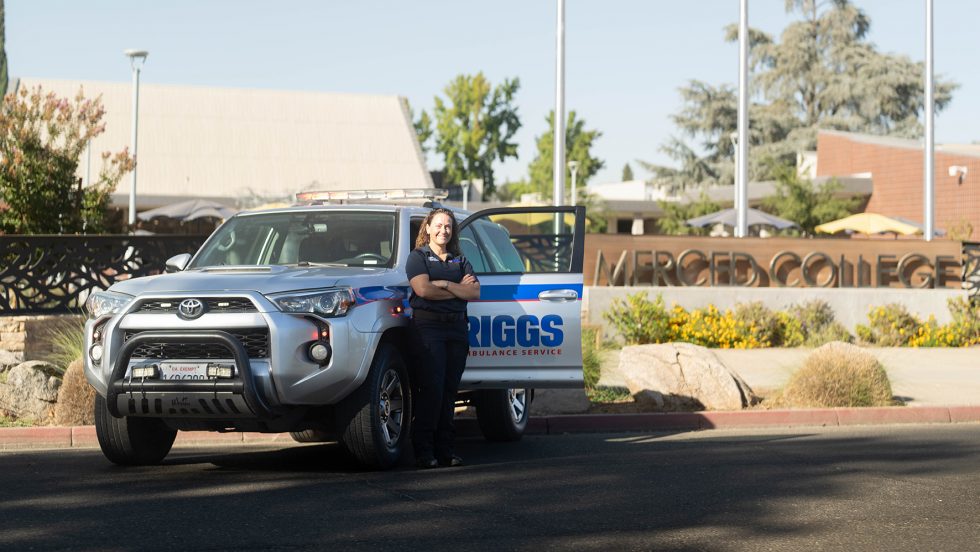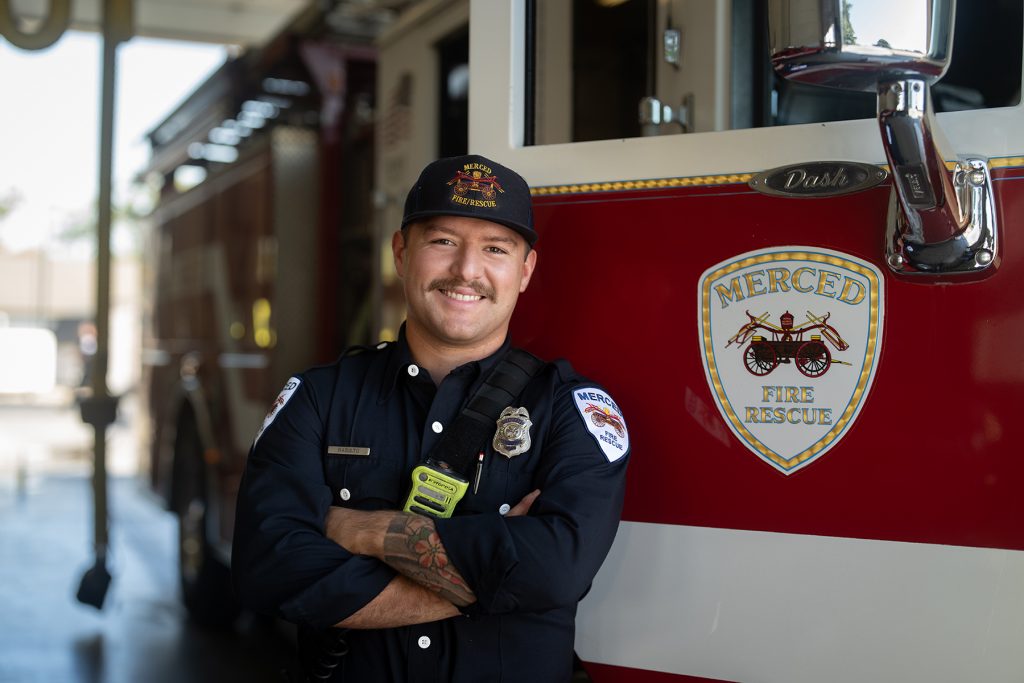Picture two people separately contemplating their futures.
One lived her life up to now, knowing there was no way on God’s green earth she’d ever be a paramedic.
The other, while still in diapers, knew the firefighter’s life was for him.
When the time came, that woman, Amanda Rowe, and that man, Diego Basulto, were both instructed, nurtured and molded within the Merced College Paramedic Program.
The thrust behind the program is to use experienced, passionate, local paramedics to train local students to give the best emergent, prehospital care to local patients.
That’s the synergy that prepared Rowe and Basulto over 18 months to pass their national certification exams this summer. They are the first two graduates from the program’s first-ever cohort.
Before Merced College launched its program in January 2023, area students had to travel to Fresno or to Sacramento or beyond to learn the trade. Training outside of Merced County usually meant that local talent ended up working outside of the county as well.
Now they train nearby, and like Rowe and Basulto, are more likely to stay here.
“Training the next batch the right way is how paramedics stay involved in their profession, and there’s no one I wouldn’t go back to for advice or feedback,” said Rowe, who is originally from Sonoma and currently working as a paramedic with Riggs Ambulance Service in Merced.
Said Basulto, a Turlock native who is now a firefighter paramedic with the City of Merced Fire Department: “If being a paramedic is what you want to do, you can’t go wrong with the Merced program.”
Mentors Abound
Rowe was surrounded by potential mentors when she first began working at Riggs as an emergency medical technician (EMT) in 2021. Before she entered the program, she often partnered with Steven Melander, her future Merced College professor.
“All of the paramedics would tell me, ‘Why are you just an EMT?” Rowe said.
Paramedics do rigorous, time-consuming training to qualify to do more advanced procedures like delivering intravenous medication, monitoring electrocardiograms (EKG) and performing tracheotomies in the field.
But Rowe loved her EMT work. She wasn’t interested in doing more. Still, she couldn’t escape the haranguing from colleagues or her family’s legacy.
“My mom’s side are all firefighters,” Rowe said. “My cousins are a battalion chief and a captain. I had an uncle who was a battalion chief. My grandfather was the battalion chief of the local volunteer brigade.
“It’s in my blood, except I wasn’t interested in fighting fires. But I kept getting drawn to emergency medicine. I kept getting shoved deeper into it.”
Rowe was still ambivalent when she applied for both the paramedic program and the POST (Peace Officer Standards and Training) Academy at Merced College. She eventually picked the paramedic program.
“It was going to open more doors for me at that moment,” Rowe said. “And our class was one of the first to get back to in-person training. It was one of the first in the region to start filling the gap after a massive time lapse during the pandemic.”
Once she began, Rowe felt her skills and appreciation for the work blossom.
“This program is 18 months of living, breathing, sleeping paramedicine,” she said. “You spend hours staring at flashcards and books, and doing tutorials, and talking to experienced paramedics and your instructors, and taking every step you can to make sure you’re ready. Then you get in the field and you’re staring at someone needing help and you think, ‘Holy crap, this is exactly what they told us about!’”
Rowe loves the demanding work.
“I like to say everyone in EMS has a special flavor,” she said. “Some like helping trauma patients. Some work well with sick people. I get people struggling with their mental health. Maybe it’s not as exciting, but it feels good when you show up to a house and law enforcement sees you and says, ‘Oh good, it’s you.’ Making a big impact on a person’s life for an hour, that’s an incredibly rewarding feeling.”

